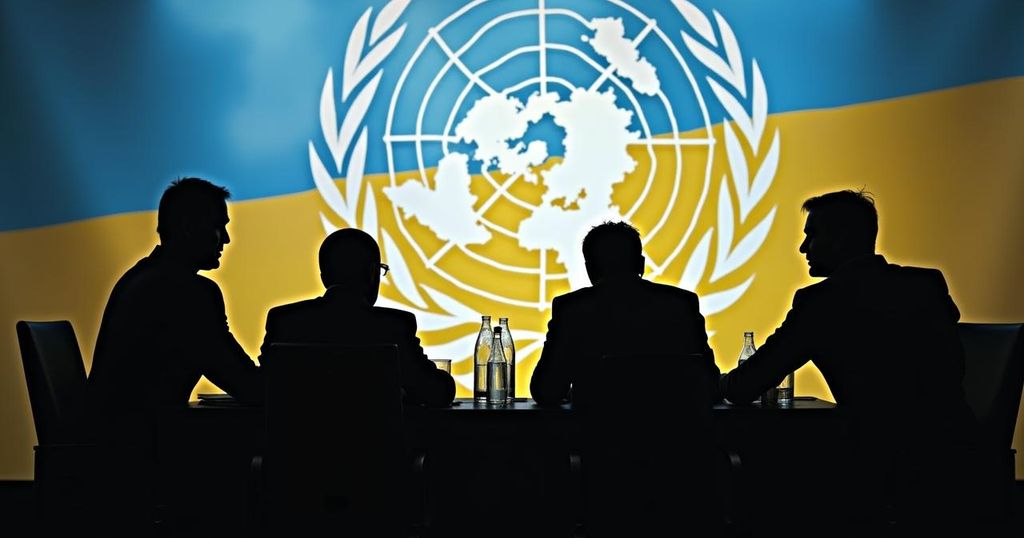Ukraine War Briefing: China and Brazil’s Peace Initiative Amid Zelenskyy’s Opposition

China and Brazil are seeking to garner support for a peace plan to end the Ukraine conflict despite opposition from Ukrainian President Zelenskyy, who criticized the initiative as benefiting Russia. Key discussions involve escalating tensions, arms trades, and significant diplomatic meetings between Zelenskyy and Trump, along with ongoing military actions and international responses.
On Friday, China and Brazil continued their initiative to bring together developing nations in support of a peace plan aimed at resolving the ongoing conflict in Ukraine. This effort unfolded amid criticism from Ukrainian President Volodymyr Zelenskyy, who expressed concerns that the proposal might favor Moscow’s position. The meeting, attended by representatives from seventeen countries and chaired by Chinese Foreign Minister Wang Yi and Brazilian foreign policy adviser Celso Amorim, addressed key issues such as preventing war escalation, the avoidance of mass destruction weapons, and protecting nuclear sites. Zelenskyy challenged the rationale behind this alternative peace effort, asserting that it risks granting Russia more leeway in the conflict. In the backdrop of these discussions, US Secretary of State Antony Blinken highlighted America’s apprehensions regarding China’s engagement with Russia, suggesting that China’s actions contradicted its stated aim to resolve the conflict. South Korean officials also reported on Russia’s purported illegal arms exchanges with North Korea, a claim echoed by multiple sources. In a significant engagement, former President Donald Trump met with President Zelenskyy amid rising tensions between Ukraine and Republican factions in the United States. Zelenskyy voiced hopes of mending relations, especially as there are concerns over potential implications for US military assistance contingent on the upcoming presidential election. Trump remarked that he could bring an expeditious resolution to the war, citing his positive relationship with both Zelenskyy and Putin. The meeting, described by Zelenskyy as “very productive,” focused on the imperative for Ukraine to prevail. Additionally, Finland announced plans to establish a strategic NATO base near its Russian border as a direct response to escalating tensions in the region. Russia reportedly captured the village of Marynivka in the Donetsk region, which Ukraine denied. Furthermore, the Russian Federal Security Service commenced investigations against foreign journalists covering the conflict, while nine Ukrainian children deported to Russia returned home thanks to diplomatic intervention from Qatar. This week saw a continuation of violence, with missile strikes in Ukraine resulting in casualties. A Romanian defense ministry report indicated a brief incursion of a Russian drone into its airspace during hostilities. Overall, the situation remains tense as international diplomatic efforts continue amidst ongoing military actions.
The ongoing conflict in Ukraine, which escalated significantly following Russia’s invasion in February 2022, has drawn in numerous international stakeholders aiming to mediate a resolution. As countries like China and Brazil attempt to craft peace proposals, the response from Ukraine and its allies has been critical, reflecting the complex dynamics of geopolitical interests at play. Zelenskyy’s concerns underscore a broader fear that alternative plans may undermine Ukraine’s sovereignty and prolong hostilities. Meanwhile, the shifting alliances and military engagements highlight the urgent need for a concerted diplomatic approach to cease the fighting and address humanitarian concerns.
In conclusion, the push for a peace plan led by China and Brazil faces substantial criticism from Ukraine, particularly from its president, who fears such initiatives may empower Russia. The geopolitical landscape remains fraught, with significant implications for international relations, military alliances, and regional stability. As discussions continue, it is paramount for involved nations to prioritize the sovereignty and security of Ukraine while navigating these complex diplomatic waters.
Original Source: www.theguardian.com







